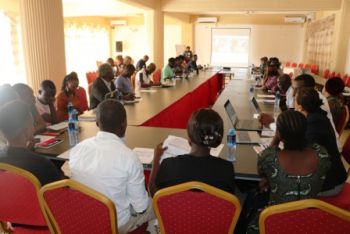People who belong to Key Affected Population (KAPs) are the most vulnerable to HIV infection according to the 2013 Integrated Bio-Behavioral Surveillance (IBBSS).
The Liberia Demographic Health Survey (LDHS-2013) reported that HIV prevalence in the general population is at 2.1% from 1.5% in 2007.
The 2013 IBBSS indicates a high HIV prevalence among men who have sex with men (19.8%). Similarly, HIV prevalence is high among female sex worker (9.8%), uniform services (5.0%), people who use drugs (5%) and long distance traders (4.5%).
An effective response to the HIV epidemic requires that KAPs are targeted by HIV prevention programs with information and services that are specific to them.
Before the end of 2018 Liberia operated five (5) Drop-In-Centers (DICs) as friendly and safe space for KAPs interventions. The DICs provide regular Integrated Health Facility (IHF) services, HIV Counseling and Testing (HCT) Services; STI diagnosis and treatment; referrals, psychosocial and legal support, and Anti-Retroviral Therapy (ART) initiation. Doctors, nurses, social workers and community mobilization officers as well as KAPs run the affairs of the DICs in the country.
In the wake of the validation of a new IBBSS,leaders, global health organizations, civil society groups and people affected by the diseases converged in Monrovia at a two day roundtable meeting from May 22-23, 2019 to review the assessment evaluation report highlighting progress and challenges of the KAPs’ program implementation in Liberia. The stakeholders brainstormed on strategies for effective and quality KAPs’ program implementation in Liberia by the Population International Services (PSI) and partners. PSI is the principal recipient of the Global Fund grant in Liberia tasked to lead the HIV community health component.
Mrs. Hilton called on participants in an opening remark to discuss the findings from the consultant’s report in connection to the KAPs program and to proffer recommendations for the advancement of the program, adding that KAP program is still new to the country.


Comments are closed.